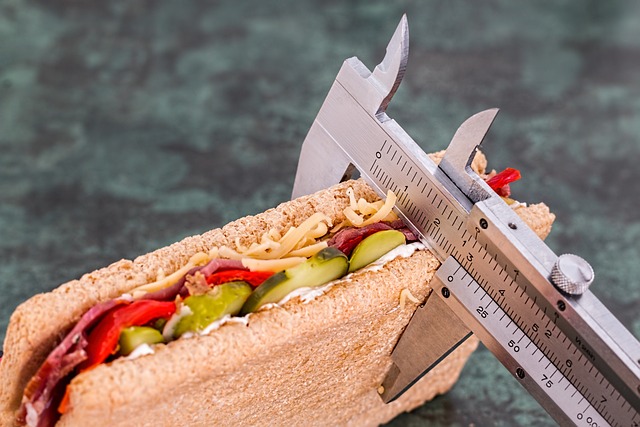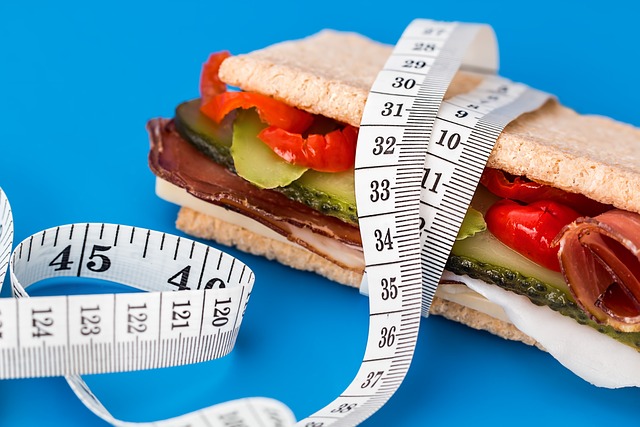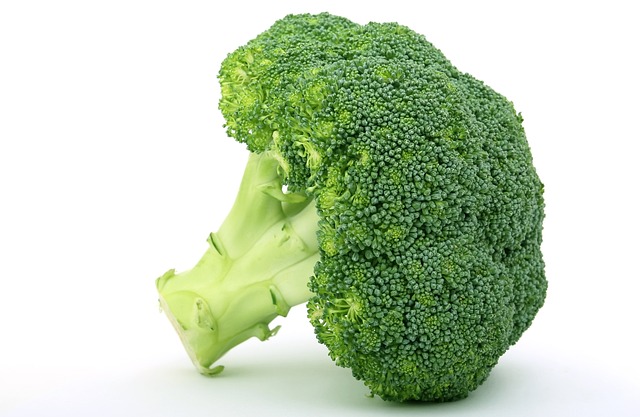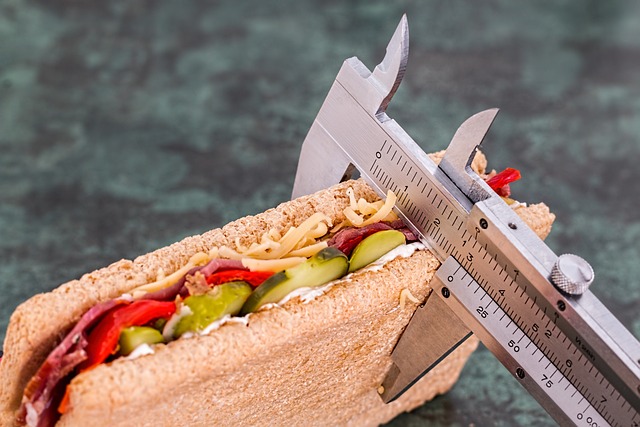Have you ever wondered how some people seem to effortlessly lose weight and improve their health? Well, have you heard about the keto diet? It has been gaining popularity in recent years for its ability to help individuals shed pounds and achieve overall wellness. In this article, we’ll dive into the world of the keto diet and explore how it can benefit you. Whether you’re looking to lose a few extra pounds or simply improve your overall well-being, the keto diet may be just what you need.
The keto diet, short for ketogenic diet, is a low-carb, high-fat eating plan that is designed to put your body into a state of ketosis. In this state, your body switches from using carbohydrates as its main source of energy to using fat. By significantly reducing your carb intake and increasing your fat consumption, you can train your body to become more efficient at burning fat for fuel. This process not only aids in weight loss but also has numerous other health benefits. From increased mental clarity and energy levels to improved blood sugar control and heart health, the keto diet offers a wide range of advantages that can positively impact your overall well-being. In the following article, we’ll explore these benefits in more detail and discuss how a customized keto diet plan can help you achieve your health and weight loss goals. So stay tuned!

What is the Keto Diet?
Definition of the keto diet
The keto diet, short for ketogenic diet, is a high-fat, low-carbohydrate eating plan that has gained popularity for its potential to aid in weight loss and improve overall health. The diet involves drastically reducing carbohydrate intake and replacing it with fats, which causes the body to enter a metabolic state known as ketosis.
How the keto diet works
When you consume very few carbohydrates, your body begins to break down fats for energy instead of glucose. This process, known as ketosis, can lead to weight loss as stored fat is burned for fuel. The keto diet helps control insulin levels and blood sugar, contributing to the body’s ability to burn fat effectively.
Key principles of the keto diet
The keto diet emphasizes consuming high-quality fats, moderate protein, and minimal carbohydrates. It typically restricts carbohydrate intake to around 20-50 grams per day, depending on individual needs and goals. This forces the body to rely on fat for energy, resulting in weight loss and various other health benefits.
Health Benefits of the Keto Diet
Weight loss on the keto diet
One of the primary benefits of the keto diet is weight loss. By reducing carbohydrate intake, the body enters a state of ketosis, where fat becomes the main source of fuel. This leads to increased fat burning and can result in significant weight loss, especially in the initial stages of the diet.
Improved insulin sensitivity
The keto diet has shown to improve insulin sensitivity, which is essential for individuals with diabetes or those at risk of developing it. By reducing carbohydrate intake, the body requires less insulin to process glucose, leading to better blood sugar control.
Reduced risk of heart disease
The keto diet has been associated with a decreased risk of heart disease. It promotes weight loss, lowers blood triglyceride levels, and increases levels of HDL (good) cholesterol. These factors combined contribute to improved heart health and reduced risk of cardiovascular problems.
Enhanced mental clarity
Many individuals report experiencing improved mental clarity and focus when following the keto diet. Stable blood sugar levels and increased consumption of healthy fats may support brain health and cognitive function. This can be particularly beneficial for those with neurological conditions or individuals seeking mental performance optimization.
Increased energy levels
While transitioning to the keto diet, some individuals may experience temporary fatigue and low energy, known as the “keto flu.” However, once the body adapts to using fat as the primary fuel source, many people report increased energy levels and improved stamina. This can be attributed to the efficient burning of fat for energy.
Foods to Eat on the Keto Diet
Healthy fats
Healthy fats are a crucial component of the keto diet. These include avocados, olive oil, coconut oil, nuts (such as almonds and walnuts), and seeds (such as chia and flaxseed). These fats provide essential nutrients and help maintain satiety.
Low-carb vegetables
Non-starchy vegetables are low in carbohydrates and rich in nutrients. Examples of keto-friendly vegetables include spinach, broccoli, cauliflower, kale, and zucchini. These vegetables can be consumed in abundance while still maintaining ketogenic ratios.
High-quality proteins
Protein is an essential macronutrient on the keto diet. Opt for high-quality sources such as lean meats, poultry, fish, and eggs. Protein helps to build and repair tissues, support muscle health, and promote satiety.
Nuts and seeds
Nuts and seeds make excellent snacks on the keto diet. They provide healthy fats, fiber, and essential minerals. Almonds, walnuts, flaxseeds, and chia seeds are particularly beneficial on a ketogenic eating plan.
Avocado and olives
Avocados and olives are rich sources of heart-healthy fats. They can be enjoyed in various forms, from adding sliced avocado to salads to using avocado oil in cooking. Olives and olive oil are also excellent sources of monounsaturated fats.
Dairy products
Dairy products such as cheese, butter, and full-fat yogurt can be included in moderation on the keto diet. These provide healthy fats and essential nutrients while adding flavor and variety to meals.
Foods to Avoid on the Keto Diet
Sugary foods
As the keto diet restricts carbohydrate intake, all sugary foods and beverages should be avoided. This includes soda, candy, cakes, cookies, and sweetened snacks. Consuming sugary foods can disrupt ketosis and hinder weight loss progress.
Grains and starches
Grains and starches are high in carbohydrates and should be eliminated or severely restricted on the keto diet. Avoid bread, pasta, rice, oats, and other grain-based products. Instead, opt for low-carb alternatives such as cauliflower rice or zucchini noodles.
Processed foods
Processed foods often contain hidden sugars, unhealthy fats, and high carbohydrate content. It’s best to minimize intake of processed foods, including packaged snacks, frozen meals, and fast food items. Instead, focus on whole, unprocessed foods.
Fruits high in sugar
While fruits are generally considered healthy, some fruits are high in sugar and carbohydrates. On the keto diet, it’s important to limit or avoid fruits such as bananas, grapes, pineapples, and oranges. Instead, opt for berries, which are lower in sugar and rich in antioxidants.
Alcohol and sugary beverages
Alcoholic beverages are high in carbohydrates and can quickly throw off your keto diet. The body metabolizes alcohol before fat, which can disrupt ketosis. Furthermore, sugary beverages such as soda, fruit juices, and energy drinks should be avoided.
Unhealthy fats
While healthy fats are encouraged on the keto diet, unhealthy fats should be limited. Avoid trans fats found in processed foods, deep-fried foods, and margarine. Focus on consuming natural sources of healthy fats such as avocados, nuts, and olive oil.

Getting Started with the Keto Diet
Consulting with a healthcare professional
Before starting any new diet, it is essential to consult with a healthcare professional, especially if you have any underlying health conditions or are taking medication. They can provide personalized guidance and ensure the keto diet is suitable for you.
Calculating your macros
To effectively follow the keto diet, it’s important to determine your macronutrient needs. This involves calculating your daily macros, which are the specific amounts of fat, protein, and carbohydrates you should consume to achieve and maintain ketosis.
Meal planning and prepping
Meal planning and prepping can significantly simplify the keto diet. Take the time to plan your meals in advance, ensuring they are balanced and contain appropriate amounts of fat, protein, and carbohydrates. This will help you stay on track and avoid making impulsive food choices.
Grocery shopping for keto-friendly foods
When grocery shopping for the keto diet, focus on purchasing foods that align with the diet’s principles. This includes healthy fats, low-carb vegetables, high-quality proteins, nuts, seeds, and dairy products. Remember to read labels and avoid processed foods and added sugars.
Overcoming Challenges on the Keto Diet
Keto flu symptoms and how to deal with them
During the initial stages of the keto diet, some individuals may experience symptoms known as the “keto flu.” These can include fatigue, headache, irritability, and sugar cravings. Staying properly hydrated and ensuring adequate electrolyte intake can help alleviate these symptoms.
Managing cravings and temptations
Cravings for high-carbohydrate foods may arise while following the keto diet. It’s important to have strategies in place to manage these cravings. Opt for satisfying keto-friendly alternatives, such as dark chocolate, nuts, or a piece of cheese.
Social challenges and dining out
Social situations and dining out can present challenges when following a specific eating plan. To navigate these situations while on the keto diet, research the menu in advance, prioritize protein and vegetable options, and communicate your dietary restrictions to those you are dining with.

Long-Term Sustainability of the Keto Diet
Transitioning to a balanced diet
While the keto diet can provide numerous health benefits, it may not be sustainable in the long term for everyone. Some individuals may find it beneficial to transition to a more balanced eating plan that includes a wider variety of nutrient-dense foods.
Maintaining weight loss results
To maintain weight loss results achieved on the keto diet, it is essential to establish sustainable habits. This includes focusing on portion control, regular physical activity, and a well-rounded diet that provides all necessary nutrients.
Adjusting macros to fit your goals
As you progress on the keto diet, it may be necessary to adjust your macros to align with your evolving goals. This could include increasing carbohydrate intake slightly to accommodate higher activity levels or adjusting protein intake to support muscle building or maintenance.
Finding support and accountability
Embarking on the keto diet can be easier with the support of others. Seek out online communities or local groups where you can connect with individuals who are following or have experience with the keto diet. Establishing accountability can help you stay committed to your goals.
Possible Risks and Side Effects of the Keto Diet
Nutrient deficiencies
The restrictive nature of the keto diet can potentially lead to nutrient deficiencies if not carefully planned. It’s essential to focus on consuming a variety of nutrient-dense foods and consider incorporating supplements as needed.
Increased risk of kidney stones
Some studies suggest a possible correlation between the keto diet and an increased risk of kidney stones. This is thought to be related to the diet’s effect on urine composition. Staying well-hydrated and ensuring sufficient intake of calcium and citrate-rich foods can help reduce this risk.
Digestive issues
The keto diet’s high fat content may lead to digestive issues such as constipation or diarrhea, particularly during the initial stages of adaptation. Adequate fiber intake, hydration, and consuming probiotic-rich foods can help support digestive health.
Muscle loss
While the keto diet does promote fat loss, there is a potential risk of muscle loss if protein intake is insufficient. It is essential to consume adequate protein to support muscle maintenance or growth and engage in regular resistance training.
Heart palpitations
Some individuals may experience heart palpitations when transitioning to the keto diet. This can be attributed to electrolyte imbalances and dehydration. Ensuring proper hydration and electrolyte balance can help alleviate these symptoms.
Combining the Keto Diet with Exercise
Benefits of combining keto with exercise
Combining the keto diet with exercise can provide additional benefits. Regular physical activity supports weight loss, enhances metabolic flexibility, improves cardiovascular health, and promotes overall well-being.
Types of exercises suitable for the keto diet
While engaging in any type of exercise is beneficial, certain activities align well with the keto diet. These include resistance training, low-intensity cardio, and exercises that promote flexibility and mobility, such as yoga or Pilates.
Timing of meals and workouts
On the keto diet, the timing of meals and workouts can play a role in optimizing performance and recovery. Some people prefer to exercise in a fasted state, while others find it beneficial to consume a small keto-friendly snack prior to their workout. Experiment to find what works best for you.
Conclusion
Discovering the benefits of the keto diet can be a life-changing experience for many individuals. The diet’s ability to promote weight loss, improve insulin sensitivity, reduce the risk of heart disease, enhance mental clarity, and increase energy levels makes it a compelling option for those seeking a healthier lifestyle.
If you are considering the keto diet, it is important to consult with a healthcare professional and ensure it aligns with your specific health needs and goals. By following the principles of the keto diet, including consuming healthy fats, low-carb vegetables, high-quality proteins, and avoiding sugary and processed foods, you can embark on a journey towards improved health and well-being.
Remember, the sustainability of the keto diet may vary from person to person, and it is essential to listen to your body and make adjustments as needed. Stay accountable, seek support, and be open to exploring if the keto diet is the right fit for you. With dedication and a personalized approach, you can reap the many benefits of the keto diet and achieve your health goals.




